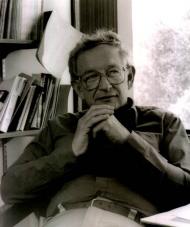Stephen often referred to as
Stephen of Blois was a grandson of William the Conqueror. He was King of England from 1135 to his death, and also the Count of Boulogne in right of his wife. Stephen's reign was marked by the Anarchy, a civil war with his cousin and rival, the Empress Matilda. He was succeeded by Matilda's son, Henry II, the first of the Angevin kings.
Stephen was a well established figure in Anglo-Norman society by 1135. He was extremely wealthy, well-mannered and liked by his peers; he was also considered a man capable of firm action. Chroniclers recorded that despite his wealth and power he was a modest and easy-going leader, happy to sit with his men and servants, casually laughing and eating with them. He was very pious, both in terms of his observance of religious rituals and his personal generosity to the church. Stephen also had a personal Augustinian confessor appointed to him by the Archbishop of Canterbury, who implemented a penitential regime for him, and Stephen encouraged the new order of Cistercians to form abbeys on his estates, winning him additional allies within the church. Rumours of his father's cowardice during the First Crusade, however, continued to circulate, and a desire to avoid the same reputation may have influenced some of Stephen's rasher military actions. His wife, Matilda, played a major role in running their vast English estates, which contributed to the couple being the second-richest lay household in the country after the king. The landless Flemish nobleman William of Ypres had joined Stephen's household in 1133, alongside Faramus of Boulogne, a Flemish relative and friend of Matilda's.
Meanwhile, Stephen's younger brother Henry of Blois had also risen to power under Henry I. Henry of Blois had become a Cluniac monk and followed Stephen to England, where the king made him Abbot of Glastonbury, the richest abbey in England. The king then appointed him Bishop of Winchester, one of the richest bishoprics, allowing him to retain Glastonbury as well. The combined revenues of the two positions made Henry of Winchester the second-richest man in England after the king. Henry of Winchester was keen to reverse what he perceived as encroachment by the Norman kings on the rights of the church. The Norman kings had traditionally exercised a great deal of power and autonomy over the church within their territories. From the 1040s onwards, however, successive popes had put forward a reforming message that emphasised the importance of the church being "governed more coherently and more hierarchically from the centre" and established "its own sphere of authority and jurisdiction, separate from and independent of that of the lay ruler", in the words of historian Richard Huscroft.
When news began to spread of Henry I's death, many of the potential claimants to the throne were not well placed to respond. Geoffrey and Matilda were in Anjou, rather awkwardly supporting the rebels in their campaign against the royal army, which included a number of Matilda's supporters such as Robert of Gloucester. Many of these barons had taken an oath to stay in Normandy until the late king was properly buried, which prevented them from returning to England. Stephen's elder brother Theobald was further south still, in Blois. Stephen, however, was in Bolougne, and when news reached him of Henry's death he left for England, accompanied by his military household. Robert of Gloucester had garrisoned the ports of Dover and Canterbury and some accounts suggest that they refused Stephen access when he first arrived. Nonetheless Stephen probably reached his own estate on the edge of London by 8 December and over the next week he began to seize power in England.
The crowds in London traditionally claimed a right to elect the king of England, and they proclaimed Stephen the new monarch, believing that he would grant the city new rights and privileges in return. Henry of Blois delivered the support of the church to Stephen: Stephen was able to advance to Winchester, where Roger, who was both the Bishop of Salisbury and the Lord Chancellor, instructed the royal treasury to be handed over to Stephen. On 15 December, Henry delivered an agreement under which Stephen would grant extensive freedoms and liberties to the church, in exchange for the Archbishop of Canterbury and the Papal Legate supporting his succession to the throne. There was the slight problem of the religious oath that Stephen had taken to support the Empress Matilda, but Henry convincingly argued that the late king had been wrong to insist that his court take the oath. Furthermore, the late king had only insisted on that oath to protect the stability of the kingdom, and in light of the chaos that might now ensue, Stephen would be justified in ignoring it. Henry was also able to persuade Hugh Bigod, the late king's royal steward, to swear that the king had changed his mind about the succession on his deathbed, nominating Stephen instead. Stephen's coronation was held a week later at Westminster Abbey on 26 December.
Meanwhile, the Norman nobility gathered at Le Neubourg to discuss declaring Theobald king, probably following the news that Stephen was gathering support in England. The Normans argued that the count, as the eldest grandson of William the Conqueror, had the most valid claim over the kingdom and the duchy, and was certainly preferable to Matilda. Theobald met with the Norman barons and Robert of Gloucester at Lisieux on 21 December, but their discussions were interrupted by the sudden news from England that Stephen's coronation was to occur the next day. Theobald then agreed to the Normans' proposal that he be made king, only to find that his former support immediately ebbed away: the barons were not prepared to support the division of England and Normandy by opposing Stephen. Stephen subsequently financially compensated Theobald, who in return remained in Blois and supported his brother's succession.

